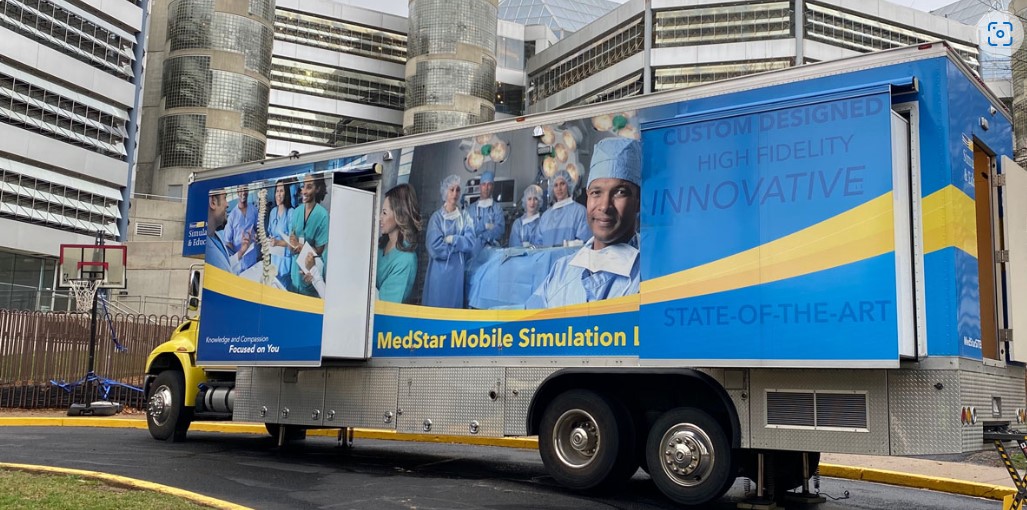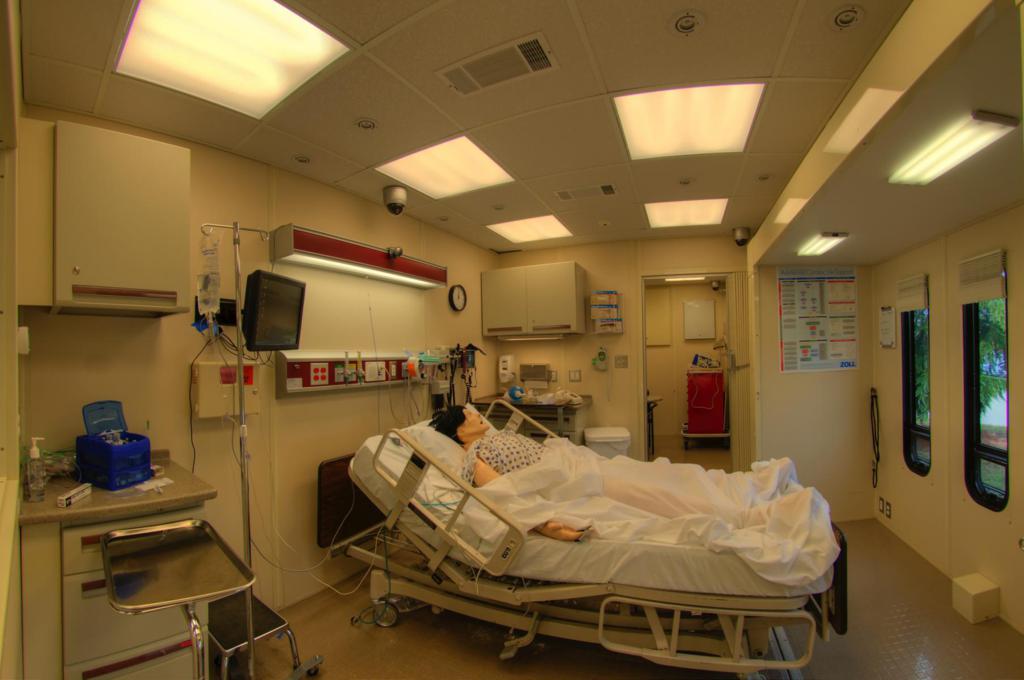The learning and development requirements in healthcare are considerably different than other businesses. Training to care for the human body is challenging for talent development in healthcare. And trainees are extremely segmented with differing needs, ranging from:
- EMS personnel

- Mammography techs
- Medical techs
- Nurses
- Physicians and surgeons
- Radiology techs
The impact of COVID-19 on other industries is not as significant as its effect on healthcare. It has created a drastic shift in patient treatments and their access to services. For virtually every healthcare modality the need for easier patient access has changed. It’s not just those on the fringes of society who are apprehensive about going to the doctor, even typical middle and upper class segments of the population show a decrease in willingness to visit a healthcare professional. Today visits to ambulatory centers is approximately one-third lower than pre-pandemic.
In the wake of the pandemic and recent pressures from the federal government to have healthcare professionals keep up with training of current and new health standards, the need for simulation training is on the rise. Including mobile medical simulation training. This is particularly the case for mammography techs with the increase in breast cancer and medical techs for everything from how to adjust a patient bed to help performing heart transplants.
The need for mobile mammography tech training is exemplified by the dramatic increase of breast cancer over the last four decades, representing approximately 30 percent of all new female cancer diagnoses each year. The American Cancer Society’s 2022 estimate states about 287,850 new cases of invasive breast cancer will be diagnosed in women, along with roughly 51,400 new cases of ductal carcinoma in situ (DCIS).
Mobile Medical Units Provide Simulation Training
Mobile medical units are widely used for simulation training offering innovative continuing education to healthcare professionals in regions that lack necessary access. In addition, mobile units provide satisfaction to trainees which is critical for active learning. Mobile healthcare simulation offers education, assessment, research, and health system integration in facilitating patient safety. They afford true-life environments that make learning and development practical and engaging, and accessible for those who would otherwise need to travel to a fixed base medical simulation center.
With continual technological advancements, medical professionals require enhanced training techniques to stay current with changes in new procedures, equipment and technologies to stay up to date with their  skills. State-of-the art mobile sim lab training units are educational outreach vehicles which take simulation training to professionals who do not have easy access to current education protocols. They deliver a realistic simulation environment for training in a high fidelity, real life representative experience of patient encounters. Mobile medical simulation gives mammography and medical technicians, nursing students, EMS professionals, physicians and other medical staff the ability to learn new procedural methods for high-tech and interactive training in suburban, rural and urban areas. These mobile units improve clinical outcomes by featuring simulated scenarios for professionals to practice their skills and increase their knowledge base while receiving real-time actionable performance feedback.
skills. State-of-the art mobile sim lab training units are educational outreach vehicles which take simulation training to professionals who do not have easy access to current education protocols. They deliver a realistic simulation environment for training in a high fidelity, real life representative experience of patient encounters. Mobile medical simulation gives mammography and medical technicians, nursing students, EMS professionals, physicians and other medical staff the ability to learn new procedural methods for high-tech and interactive training in suburban, rural and urban areas. These mobile units improve clinical outcomes by featuring simulated scenarios for professionals to practice their skills and increase their knowledge base while receiving real-time actionable performance feedback.
Learners perform tasks related to their specific roles with current medical equipment, computer software, and simulation manikins that are wirelessly operated by educational and simulation technical training staff to simulate real world scenarios. This immersive approach to learning prepares new and seasoned medical professionals to handle real life situations from emergencies to routine screenings and more.
Funding Opportunities
There is a renewed push by the Federal Government and other institutions for simulation based training in all segments of healthcare. For example, in 2021 the University of Iowa received an $8 million grant from the Helmsley Charitable Trust for a mobile simulation program to train health care providers and first responders in rural areas. And in October of 2022 Congresswoman Bonnie Watson Coleman secured $500,000 of federal grant funding for a mobile simulation unit for Capital Health in New Jersey.
There are many funding opportunities from the federal government and private institutions to help organizations in developing a mobile simulation program to service healthcare professionals in rural and urban areas. These resources help advance the safety, efficiency, effectiveness, and quality of treating patients by utilizing simulation training. Among the numerous funding resources are:
- Grants.gov
- Health Resources & Services Administration
- Simulation Academy Novice Research Grant
- The Robert Wood Johnson Foundation
- The Society for Simulation in Healthcare
There are also companies such as CAE Healthcare who supply simulation training products and provides Proposal Guidance for Institutions Seeking Educational Grants for Human Patient Simulation programs.
Mobile medical training is a vital tool to teach trainees about the skills needed in the real world. There is a renewed demand for mobile medical units to provide simulation training for healthcare providers in rural and urban areas, who find it increasingly difficult to maintain current procedure education in a structured framework. And they not only provide a means for lifelike point-of-care education, but also serve as a rolling billboard to increase awareness of your organization in the community.
Learn more by contacting us on the web at LifeLine Mobile, or calling 1-800-678-5463. We’re here to help you with every step in developing a mobile medical simulation program that best fits your needs.
Download our White Paper to Learn About:Preserving & Growing Your Market Share
Additional Sources Include: